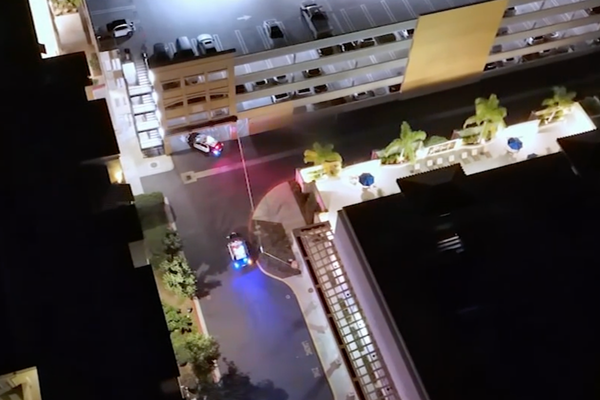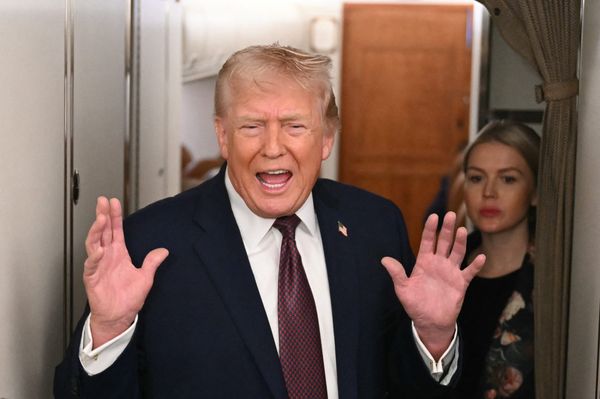
The streets of Tel Aviv felt empty this Monday morning. Apart from people rushing to work or walking their dogs, the place seemed relatively deserted. Even some of the most popular coffee spots had more vacant seats than occupied ones. This day feels like a holy day – not because it actually is one (it’s Simchat Torah Eve) – but because of the return of the last 20 living hostages from Hamas captivity. There was no need to ask where everyone was. Thousands had gathered in “hostages square” in Tel Aviv (formerly known as Museum Square – and who knows if that name will ever return). Others were glued to their television screens at home, as if it were the World Cup final. Thinking about it, the war’s final act trumps even that. Apparently, the sound of silence can be full of joy.
Ever since the deal was struck and the war finally came to an end, it seems Israel has been under the influence of the best drug imaginable. Strolling through the streets now, you see people smiling for no reason – or perhaps for the best reason of all. Even the serious faces worn by TV anchors have been replaced by cheerful ones. “Today is the day I smile,” said one correspondent gladly this morning, stating the obvious. But as the TV presenters and panellists persisted with the good news theme, you could not help but notice the other footage. As the buses and Red Cross vehicles drove through the Gaza Strip on their mission to bring the hostages back, the scene was one of destruction – ruins of cities where people once lived.
The fight for the hostages and the calamity in Gaza are two sides of the war’s coin. That will remain the case in the days to come. But as time goes on, more and more focus will probably shift to Gaza, its rehabilitation, and the truth that lies beneath all the rubble.
The curtain-raiser will come later today in the resort city of Sharm el-Sheikh in Egypt, where the leaders’ summit on Gaza will convene. Perhaps this meeting, and those that will inevitably follow (given that the plan for “the day after” could hardly be resolved in a single day) will set a timeline for a new international governing body and security force to actually take control of the Gaza Strip. As if there were any doubt about the urgency of this, even by the weekend some news reports suggested that Hamas had already reasserted control of Gaza as part of its own version of “law and order”.
Only at noon today, almost in the final minute of stoppage time, did Egypt announce that Israel’s prime minister, Benjamin Netanyahu, had also been invited to the summit. Given that Netanyahu had been reluctant to end the war ever since it began – no matter the cost – this decision seemed to be an attempt to tie him to the “day after” scenario for both Israel and Gaza. Unlike the first phase, which brought the hostages home, the second offers Israel no tangible gains. It’s all about Gaza’s rehabilitation. Considering that many Israelis viewed the end of the war as a price worth paying to bring the hostages back, one must wonder: will they seek a return to the battlefield once all Israelis are safely home? Netanyahu’s attendance in Sharm el-Sheikh, alongside Mahmoud Abbas, the president of the Palestinian National Authority, should have provided an answer to that question. However, just an hour later – after the Israeli media celebrated his imminent attendance – his office stated that he had to politely decline due to the proximity to the start of the holy day in Israel.
Whatever Netanyahu’s true reason may be, perhaps the bottom line remains: this summit, coordinated by Donald Trump with world leaders, is a way of signalling to Israel that Gaza is no longer under its sole authority. The war is over – as Trump keeps saying – and now others will take charge. Of course, any initiative in Gaza will still need to work closely with the Israeli government. But the question remains whether it will be a cooperative effort or a matter of direct orders – much like the way Trump compelled Israel to accept the deal to end the war.
Speaking in the Israeli parliament today, Trump said: “Israel, with our help, has won all that they can by force of arms – you’ve won. Now it is time to translate these victories against terrorists on the battlefield into the ultimate prize of peace and prosperity for the entire Middle East.” This statement may come as no surprise, given his previous remarks declaring that “the war is over”. It also aligns with the scheduled visit to Israel by the president of Indonesia tomorrow: Israel doesn’t have diplomatic relations with Indonesia, and the visit might suggest another “peace deal” is coming. But (not to spoil the celebrations), one must ask: where do the Palestinians fit into this vision? Is an independent state really just around the corner? Does that include the West Bank, and does it mean the end of all settlements? That seems a premature conclusion, to say the least. And if that is not forthcoming, is lasting peace really likely?
But that is just one unresolved issue among many. Others were evident during the early celebrations on Saturday evening in Hostage Square, where, behind the displays of happiness and relief, deeper truths emerged. The most notable moment of the evening came when Trump’s envoy, Steve Witkoff, attempted to praise Netanyahu for his role in achieving the deal. The crowd – far more familiar with his failures – booed loudly. Not once, not twice. Every time his name was mentioned, the crowd jeered. The rhythmic chant, “Thank you, Trump” only emphasised whom Israelis view as their true saviour.
This may be the most important revelation: in the eyes of the public, Israel’s government – or at least the one representing its interests – sits not in Jerusalem, but in Washington. But even if that’s true for now, Trump – as he’s proven countless times before – is like a child who quickly tires of old toys. At some point, he will probably abandon the Middle East and redirect his attention elsewhere: the Russia-Ukraine conflict (after all, there’s still time to chase next year’s Nobel prize), his battle against immigration, or the war he’s declared on US democracy itself. If that point comes, the world will face another big test. Trump may have ended the war, but who is responsible for the really tough job of maintaining the peace?
Roy Schwartz is a senior editor and op-ed contributor at Haaretz







